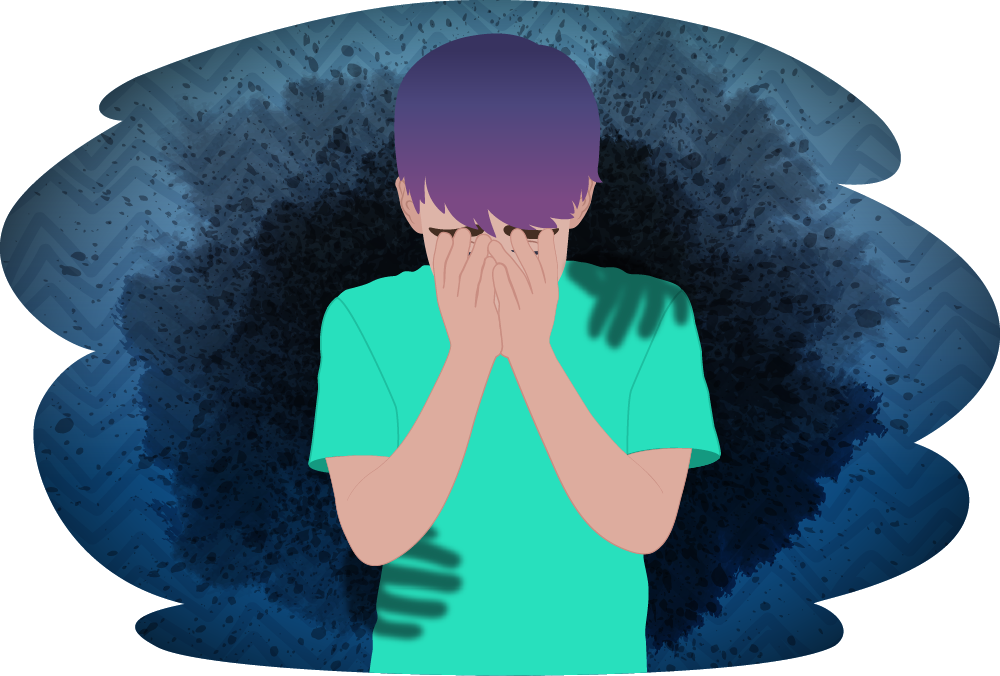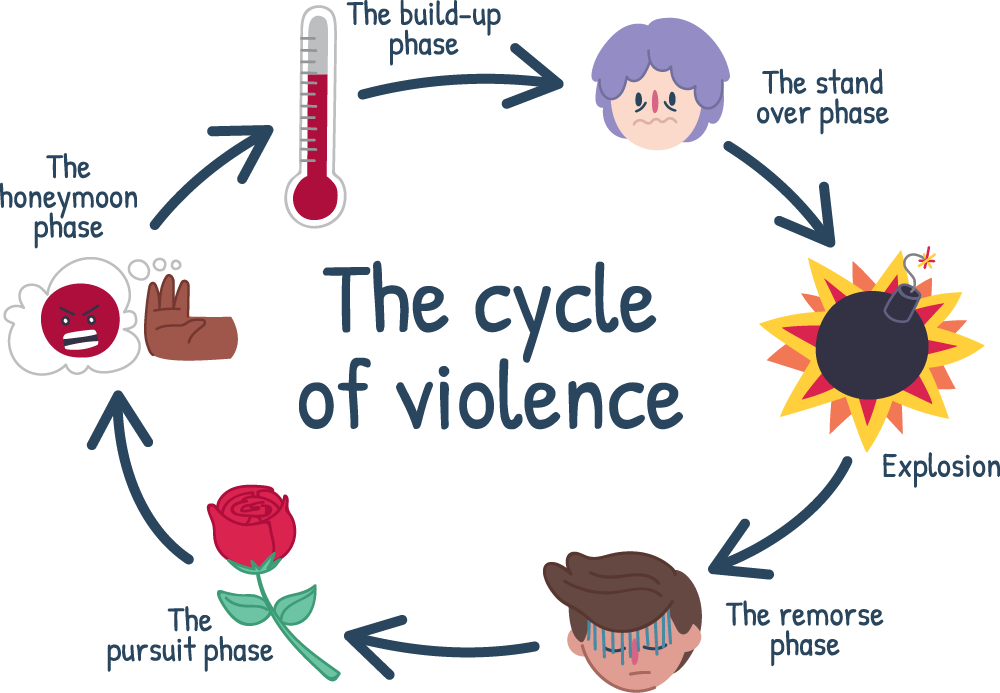My friend’s partner is abusive
If you’re worried that your friend is in an abusive relationship, ...
READ MEYou have a right to be safe. Abusive family relationships are complicated. Let’s look at why abuse happens, and how it can impact on your brain.
Content Warning: this article contains violence and trauma related content that may be triggering or distressing.

You may have heard of your ‘fight/flight/freeze response’ that helps you deal with stress or danger. But there are more than just these three responses.
In unsafe or abusive environments, some people use the ‘appeasement’ response, too. This response evolved to help you try to survive the threat of abuse by trying to calm down someone who is trying to harm you.
These responses are genuine. This means that you might feel deep love or care for someone who is also abusive.
And you don’t get to consciously choose what response you use – your response is automatic.
"People leaving abusive relationships are most at risk of violence just before they leave, while they are leaving and immediately after they leave."
– Amanda, Kids Helpline Counsellor
Two things that might make people feel stuck are:
Let's look at what this means...
Violence and other forms of severe abuse are a repeated pattern of behaviour.
Abuse is a cycle which includes a time of ‘making up’ where the person abusing may apologise and seem sorry, and then a time where it seems like they are changing for the better.
Being in ‘appeasement’ survival response makes it easier to forgive and give multiple chances. You want to bond, nurture and please that person.
Unfortunately, the violence cycle continues and over time, which means things will get bad again.

Violence or emotional abuse can become more and more intense over time. But sometimes we don’t see or feel that it’s getting worse. This can be because our brain has developed a tolerance, which means that you can get used to feeling unsafe.
This can make it harder to get help! Our brain sees anything new and different as a possible threat. People and environments that are familiar and predictable can start to feel ‘normal’, even when they are dangerous.
Leaving an abusive home or partner, e.g. to live somewhere different, is unfamiliar. This means it can feel unsafe and make you anxious. Going back home (even if home is unsafe) is familiar, so you might feel calmer when you go back home.
This is called ‘negative reinforcement’ and can help explain why people might leave an unsafe environment, and then come back again.
People might say things like, “(The person doing the abuse) seemed like such a nice person,” or, “(The person abusing) just snapped because their relationship broke down!” Or even, “If you were being abused, why didn’t you just leave”?
These opinions are victim-blaming and play a role in allowing abuse to continue.
These kinds of opinions make people who abuse others feel justified and like they are the ‘real’ victims. They enable people who abuse to continue abusing. They also make it harder for people being abused to get help, as they might blame themselves or feel ashamed. They might feel hopeless, like no one will believe or help them. They may also be scared of making the situation worse.
Our brain doesn’t like not being in control. If it can find a way to make abuse your own fault, it feels like it can prevent it and stay safe. You might think, “If only I didn’t say that, I wouldn’t have been hurt. In future, I will be more careful with what I say so I don’t make them mad…”
For people who haven’t experienced abuse, victim-blaming can help them feel safer. They might think, “This bad thing won’t happen to me because I do x, y & z. Therefore, I am safe from abuse.”
People who abuse choose who they abuse, when and where they abuse. They are able to stop abusing when it benefits them.
When it comes to violence, they can also choose to harm in ways that aren’t easily visible and don’t always leave marks.
Abuse thrives on secrecy. In fact, people who abuse will deliberately target people they think are most likely to keep it secret, and are less likely to be believed.
Asking for support and not knowing what comes next can be frightening. But abuse rarely resolves without intervention, as people who abuse want it to be kept secret so they can keep abusing.
If you are experiencing violence or abuse at home, please tell an adult you trust about what’s going on. Tell more than one adult and keep talking to them even after the abuse has stopped.
My friend’s partner is abusive
If you’re worried that your friend is in an abusive relationship, ...
READ MEStaying safe in an abusive home
You have a right to be safe. In an unsafe environment like ...
READ MEStaying safe in an abusive relationship
Being in an abusive relationship can be frightening and confusing. Your safety ...
READ MEUnderstanding sexual abuse
Sexual abuse is never ok. In this article we focus on what ...
READ METalking helps! We’re here for you.
No problem is too big or too small.
We're here 24 hours a day, 7 days a week